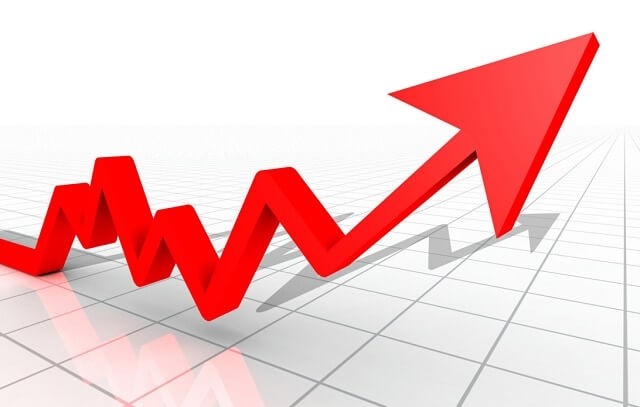
Nigeria’s annual consumer inflation rate rose to near a three-and-a-half year all-time high to 11.4 percent in February.
According to the National Bureau of Statistics, NBS, released on Tuesday March 15, Consumer Price Index, CPI increased to 11.4 per cent in February, coming from 9.6 per cent recorded in January.
The CPI measures the average change over time in prices of goods and services consumed by people for day-to- day living.
Advertisement
The last time Nigeria recorded a double digit inflation rate was in December 2012.
The bureau stated that, the food sub-index moved up 1.4% month-on-month to 11.3% in February. The Food index increased by 11.3%, up by 0.71% points from rates recorded in January.
The report noted that the speedy rise, which led to the overall increase in the headline index, were recorded across almost all major divisions, except the restaurants and hotels divisions, which, it said, increased, at a slower pace.
On a month-on-month basis, the headline index increased at a faster pace in February relative to January. The index increased by 2.3 per cent in February, roughly 1.4 percentage points from rates recorded in January,
Advertisement
The NBS report stated: “In February, the Consumer Price Index which measures inflation recorded a significant uptick. The headline index increased by 11.4 per cent (year-on-year) in February, roughly 1.76 per cent points higher from rates recorded in January (9.6 per cent).
“The faster pace of increases which led to the overall increase in the headline index was recorded across almost all major divisions which contribute to the Headline index with the exception of the Restaurants and Hotels division which increased, albeit at a slower pace.
“Imported food items as well as other necessary inputs to producing key local staples such as bread continue to drive the food index higher. The Food index increased by 11.3 per cent (Year- on-year) 0.7 per cent points higher from rates recorded in January.
“The highest price increases were recorded in the Fish, Vegetables and Bread and Cereals groups for the second consecutive month.”
The latest figures overruns the Central Banks effort to mitigate the surging prices in the economy.
Advertisement
The Apex bank had previously set an inflation tolerance limit of 9.0 per cent, to stabilise the price and exchange rate policy.


